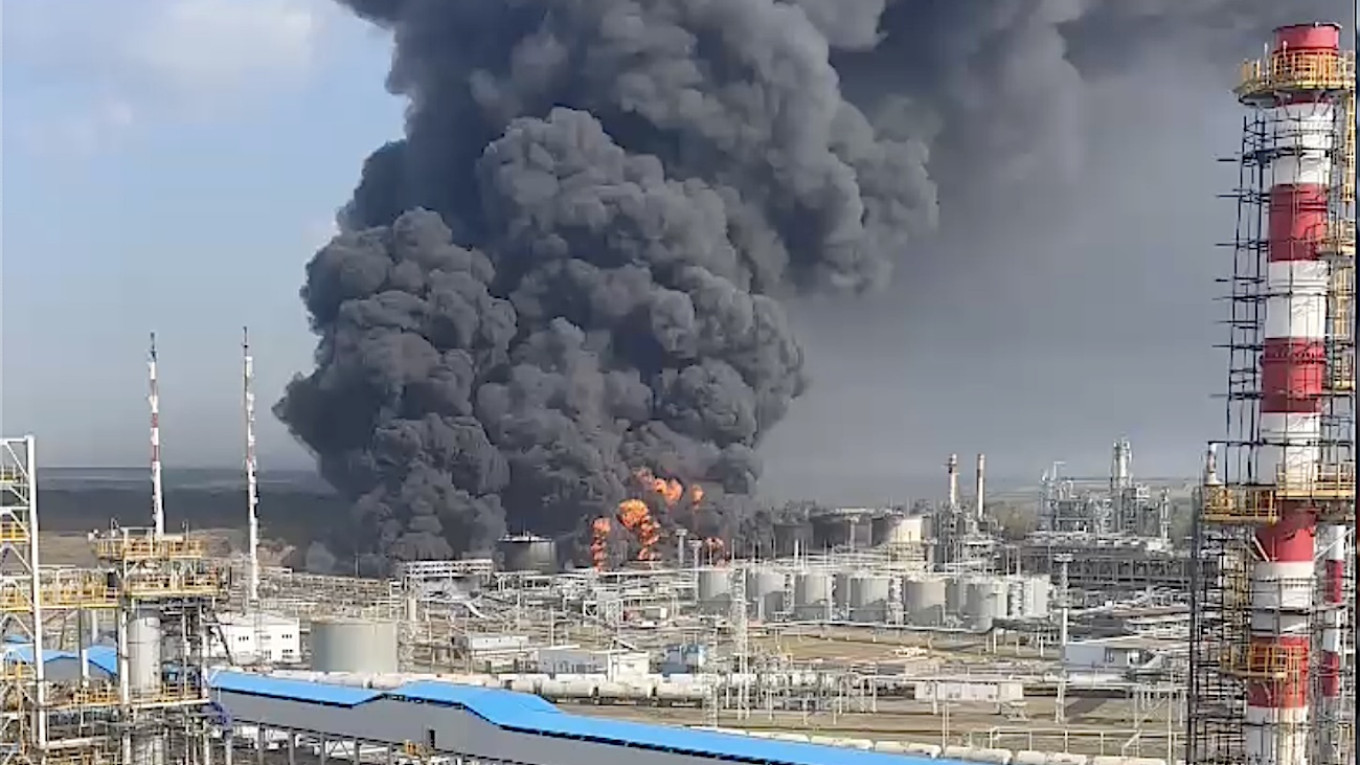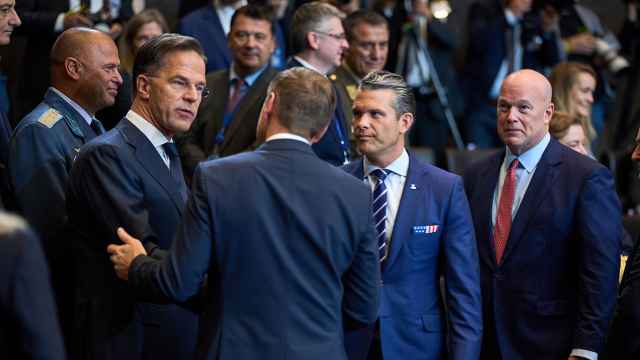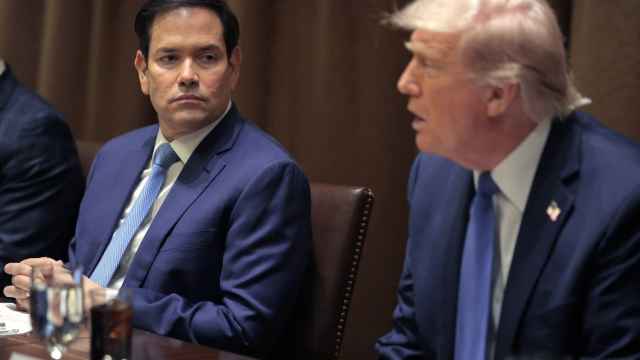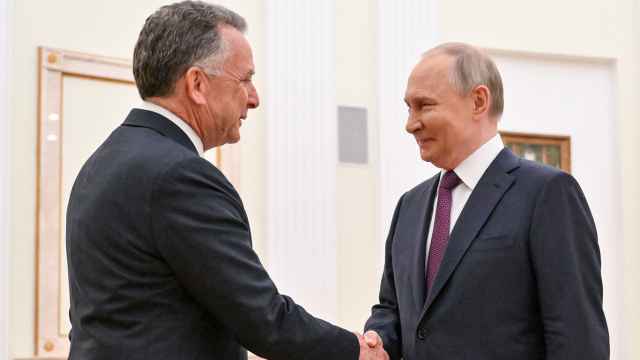The United States has been providing Ukraine with intelligence to help plan long-range drone strikes on Russian energy infrastructure, including oil refineries, since this summer, the Financial Times reported Sunday, citing American and Ukrainian officials.
The coordination, which the U.S. has not publicly acknowledged, is part of a broader effort to weaken Russia’s economy and pressure President Vladimir Putin into peace talks, FT's sources said.
The intelligence has helped Ukraine’s military determine flight routes, altitude and timing for its drones to evade Russian air defenses, FT reported. Three sources said Washington has been closely involved in every stage of strike planning.
One U.S. official said Kyiv chooses the targets, while Washington provides intelligence on their vulnerabilities. But other sources told FT that U.S. intelligence also helps identify high-priority targets.
Although U.S. President Trump has made brokering a peace deal between Moscow and Kyiv a key foreign policy goal since taking office in January, repeated rounds of shuttle diplomacy and a high-profile summit with Putin in Alaska have so far failed to secure concessions from the Kremlin leader.
Last month, Trump said Ukraine could win back all of its territory from Russia and even go further in a major pivot from his earlier lukewarm support for Kyiv.
The latest intelligence sharing for striking at Russia’s energy assets reportedly came after a July phone call between Trump and Ukrainian President Volodymyr Zelensky.
During that call, Trump signaled his support for a strategy aimed at making Russia “feel the pain” to force the Kremlin toward the negotiating table, FT reported.
Ukraine has ramped up its drone attacks on Russian oil and gas facilities and pipelines since August, with Bloomberg estimating that roughly one in three Russian refineries has been hit.
At least four major refineries partially or fully halted operations following drone strikes in September, including the Novokuybyshev refinery, Gazprom’s Astrakhan gas processing plant and Rosneft’s Ryazan refinery — one of the country’s five largest and a key supplier to the Moscow region.
Strikes in October targeted the Antipinsky refinery in Tyumen, Slavneft-YANOS in Yaroslavl, Rosneft’s Tuapse refinery, Orsknefteorgsintez in Orenburg and Kinef in the Leningrad region. A fire at Kinef forced the shutdown of its main unit, which accounted for about 40% of its processing capacity.
Russia’s total refining output has fallen to 4.86 million barrels per day, nearly 10% lower than in July and the lowest level in at least five years.
According to state statistics agency Rosstat, retail gasoline prices rose 2.58% in September, the steepest monthly increase since 2018.
Prices were up 12.73% on an annual basis, the fastest pace in 14 years.
The damage has forced Russia to curb fuel exports, boost imports from Belarus and begin buying supplies from China and other Asian countries.
Fuel shortages and long lines have been reported at filling stations in 57 regions, where local authorities have imposed limits on gasoline sales.
A Message from The Moscow Times:
Dear readers,
We are facing unprecedented challenges. Russia's Prosecutor General's Office has designated The Moscow Times as an "undesirable" organization, criminalizing our work and putting our staff at risk of prosecution. This follows our earlier unjust labeling as a "foreign agent."
These actions are direct attempts to silence independent journalism in Russia. The authorities claim our work "discredits the decisions of the Russian leadership." We see things differently: we strive to provide accurate, unbiased reporting on Russia.
We, the journalists of The Moscow Times, refuse to be silenced. But to continue our work, we need your help.
Your support, no matter how small, makes a world of difference. If you can, please support us monthly starting from just $2. It's quick to set up, and every contribution makes a significant impact.
By supporting The Moscow Times, you're defending open, independent journalism in the face of repression. Thank you for standing with us.
Remind me later.






